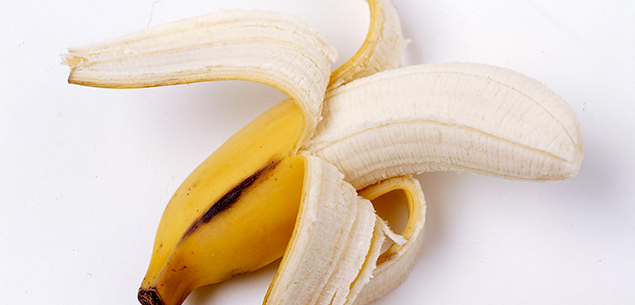A friend of mine recently had a very scary experience. One evening she had stomach cramps which quickly became so severe she was in absolute agony and couldn’t stand up straight. Her worried husband called an ambulance and on the trip to the hospital, her mind went into overdrive wondering what on earth was wrong.
The doctor’s diagnosis came as a huge surprise.
It turned out that she was suffering from a potassium deficiency. One injection later, the pain was gone and she made a quick recovery.
“Now I have to make sure I eat plenty of foods containing potassium, and I am going to make the effort because I never want to go through that again,” she says.
Getting enough potassium is not something most people give a lot of thought to. But this mineral is crucial to many body processes, and if you’re lacking, not only can you end up feeling very unwell but it can even be life-threatening.
Potassium is important because…
It plays a crucial role in assisting cells, tissues and organs to function properly
It helps to balance fluid and minerals in the body and keep blood pressure healthy
It assists nerves and muscles to work effectively and helps conduct the electrical impulses that control the heart.
You can end up with low potassium because…
You’re taking medication that disrupts potassium levels. Diuretics, some antibiotics and steroids can have an effect, and insulin can sometimes temporarily cause low potassium
Potassium has been lost from your body due to vomiting, diarrhoea, overuse of laxatives or excessive sweating
You have kidney problems
Your diabetes is poorly controlled and your body ends up depleted of potassium
You have anorexia, bulimia or are an alcoholic
You have very poor eating habits and don’t get enough potassium from food. Eating lots of processed foods can cause problems because they upset your body’s balance between sodium and potassium.
Signs you may be deficient include…
Muscle weakness and spasms such as twitching
Fatigue and general malaise
Aching, stiff or tender muscles
Abdominal bloating, pain and cramping and constipation
Heart palpitations – noticing missed or extra beats or feeling that your heart is pounding too fast or too hard
Dizziness and fainting, especially when standing up after sitting
Frequent need to urinate and excessive thirst
Numbness and tingling – or sometimes a burning sensation especially in the hands and feet.
You should see the doctor…
If you have any of these symptoms because they can also be signs of a whole host of other conditions that need medical attention. Blood tests can show whether you are low in potassium (officially known as hypokalemia) and your doctor will then decide what to do next. Treatments include…
Potassium supplements
Stopping medication that may have contributed to low potassium (if appropriate)
Eating potassium-rich foods
You need to do something about low potassium because…
In extreme cases, it can cause muscles to go completely limp, including those you use to breathe, which is potentially fatal.
But be careful because…
Too much potassium (hyperkalemia) can be bad for you too and lead to heart problems. Be wary if:
You have kidney disease
You have diabetes or heart disease
You’re taking medications for high blood pressure or heart disease.
Talk to your doctor about your specific situation.
Get an ample daily dose
We need around 4700mg of potassium a day but most people get a lot less. Here are some potassium-rich foods.
One medium baked potato with skin on 925mg
Cup of spinach 839mg
Half a cup of dried apricots 755mg
Standard pot of yoghurt 579mg
One medium baked kumara 542mg
One 85g piece of salmon 534mg
Half a cup of white beans 502mg
Half an avocado 487mg
One average banana 422mg
Take a look at this at home eye screen for children here.
Image: bauersyndication.com.au




